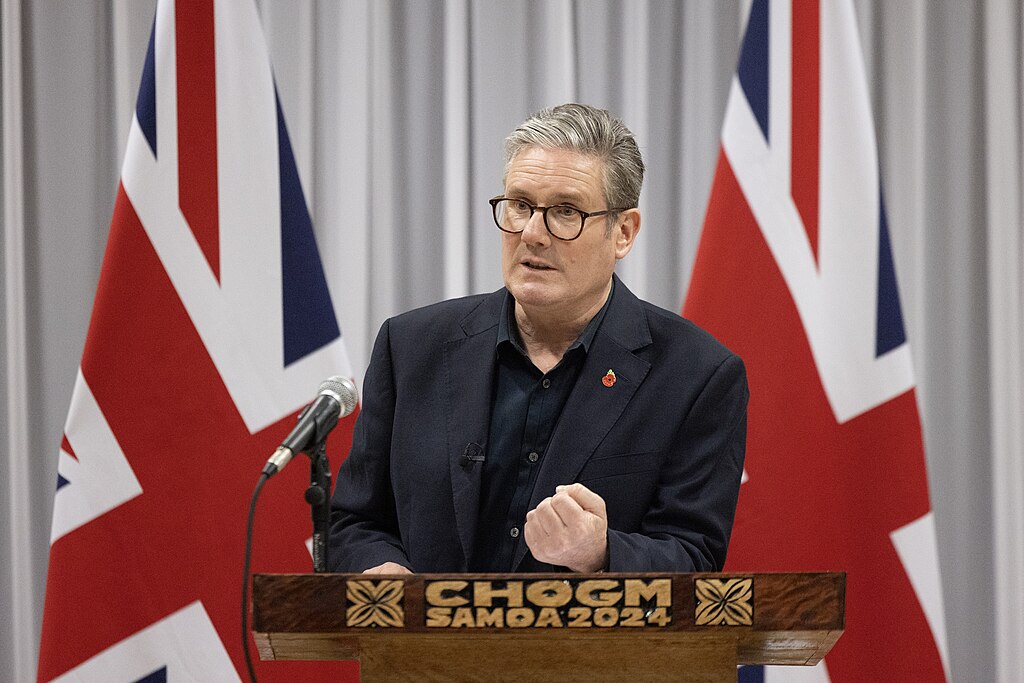UK Labour leader Keir Starmer has reignited discussions on economic reform with a bold pledge to "get people back to work." In a social media post, Starmer vowed that his government would implement "real reform" to boost employment, reduce dependency on benefits, and energize the economy. His statement comes amid rising unemployment concerns and debates on how best to address economic challenges in post-pandemic Britain.
The Labour leader's declaration has sparked a mix of praise and criticism. Supporters see it as a much-needed commitment to address long-standing issues in the labor market, while skeptics question the feasibility of his proposals. Starmer’s comments underscore his party's effort to position itself as the frontrunner in delivering economic solutions ahead of the next general election.
Aiming for Comprehensive Economic Overhaul
In his message, Starmer emphasized that his government would pursue substantial reforms rather than "tinkering" with existing policies. The Labour leader hinted at a broader strategy to tackle unemployment, cut benefits expenditure, and stimulate growth in key sectors. Starmer's focus on empowering individuals and reducing the welfare burden signals a shift toward policies aimed at fostering economic independence.
While details of his plan remain scarce, Labour insiders suggest the proposed reforms could involve increased investment in skills training, job creation initiatives, and support for businesses. These measures aim to create opportunities for individuals currently reliant on government support.
Economic analysts, however, remain divided. Some applaud Starmer's vision, arguing that innovative labor market strategies could help address stagnation and reinvigorate local economies. Others caution against oversimplified solutions, pointing to structural issues like automation, global competition, and regional disparities.
Public Reaction Highlights Division
Starmer’s pledge quickly garnered attention on social media, where opinions were polarized:
- @EconomyWatcherUK: “Finally, a leader talking sense! Real reform is what this country desperately needs. #LabourVision”
- @SkepticalVoter: “Starmer says a lot but offers little substance. How exactly will he ‘fire up the economy’? #EmptyPromises”
- @WorkingClassVoice: “As someone struggling to find work, I welcome this plan. Hope it’s more than just words. #KeirStarmer”
- @FiscalHawk: “Cutting the benefits bill without tackling poverty? Starmer’s reforms sound like austerity 2.0 in disguise. #ThinkAgain”
- @SmallBusinessHero: “If Labour supports small businesses, I’m on board. We need incentives to grow and hire! #JobsFirst”
- @Student4Change: “Investment in skills is key! Education should be at the heart of this reform. #FutureWorkforce”
A Critical Moment for Labour
As the UK grapples with inflation and stagnant wages, Starmer's statement reflects Labour's effort to position itself as the party of economic opportunity. However, critics argue that without concrete policy details, such promises risk being dismissed as political rhetoric.
Starmer's vision of an economy with reduced reliance on welfare aligns with calls for greater efficiency in public spending. Yet, the challenge remains in delivering tangible results without alienating vulnerable groups or exacerbating inequality.



 Trump Endorses Japan’s Sanae Takaichi Ahead of Crucial Election Amid Market and China Tensions
Trump Endorses Japan’s Sanae Takaichi Ahead of Crucial Election Amid Market and China Tensions  Trump Says “Very Good Talks” Underway on Russia-Ukraine War as Peace Efforts Continue
Trump Says “Very Good Talks” Underway on Russia-Ukraine War as Peace Efforts Continue  TrumpRx.gov Highlights GLP-1 Drug Discounts but Offers Limited Savings for Most Americans
TrumpRx.gov Highlights GLP-1 Drug Discounts but Offers Limited Savings for Most Americans  Trump’s Inflation Claims Clash With Voters’ Cost-of-Living Reality
Trump’s Inflation Claims Clash With Voters’ Cost-of-Living Reality  Nicaragua Ends Visa-Free Entry for Cubans, Disrupting Key Migration Route to the U.S.
Nicaragua Ends Visa-Free Entry for Cubans, Disrupting Key Migration Route to the U.S.  U.S. to Begin Paying UN Dues as Financial Crisis Spurs Push for Reforms
U.S. to Begin Paying UN Dues as Financial Crisis Spurs Push for Reforms  India–U.S. Interim Trade Pact Cuts Auto Tariffs but Leaves Tesla Out
India–U.S. Interim Trade Pact Cuts Auto Tariffs but Leaves Tesla Out  Trump Signs “America First Arms Transfer Strategy” to Prioritize U.S. Weapons Sales
Trump Signs “America First Arms Transfer Strategy” to Prioritize U.S. Weapons Sales  Trump Lifts 25% Tariff on Indian Goods in Strategic U.S.–India Trade and Energy Deal
Trump Lifts 25% Tariff on Indian Goods in Strategic U.S.–India Trade and Energy Deal  Trump Allegedly Sought Airport, Penn Station Renaming in Exchange for Hudson River Tunnel Funding
Trump Allegedly Sought Airport, Penn Station Renaming in Exchange for Hudson River Tunnel Funding  Trump Allows Commercial Fishing in Protected New England Waters
Trump Allows Commercial Fishing in Protected New England Waters  New York Legalizes Medical Aid in Dying for Terminally Ill Patients
New York Legalizes Medical Aid in Dying for Terminally Ill Patients  Trump Signs Executive Order Threatening 25% Tariffs on Countries Trading With Iran
Trump Signs Executive Order Threatening 25% Tariffs on Countries Trading With Iran  U.S. Announces Additional $6 Million in Humanitarian Aid to Cuba Amid Oil Sanctions and Fuel Shortages
U.S. Announces Additional $6 Million in Humanitarian Aid to Cuba Amid Oil Sanctions and Fuel Shortages  U.S.-India Trade Framework Signals Major Shift in Tariffs, Energy, and Supply Chains
U.S.-India Trade Framework Signals Major Shift in Tariffs, Energy, and Supply Chains  US Pushes Ukraine-Russia Peace Talks Before Summer Amid Escalating Attacks
US Pushes Ukraine-Russia Peace Talks Before Summer Amid Escalating Attacks 































